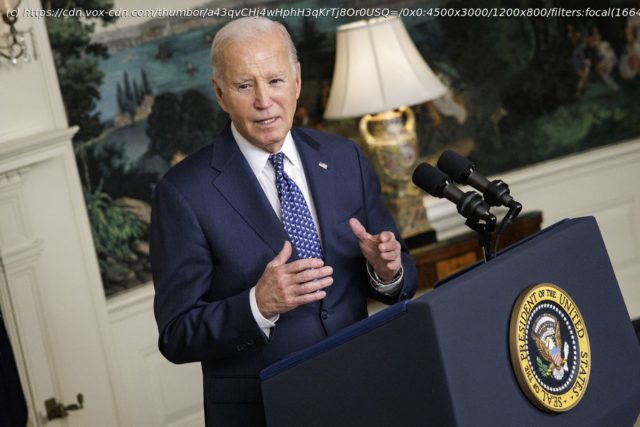Even if voters or the establishment wanted to, there really isn’t a viable process to replace Biden as the nominee.
That President Joe Biden is an old man is nothing new. It’s also not groundbreaking to say that he’s unpopular with broad swathes of Americans.
But after last week’s special counsel report on Biden’s handling of classified documents highlighted lapses in Biden’s memory during questioning, a familiar question has taken hold: Is Biden really the best option Democrats have in 2024?
This malaise isn’t limited to Biden; this presidential cycle there’s widespread dissatisfaction that two old men are all but guaranteed to be the major parties’ presidential nominees.
On the Republican side, that’s come across through a contested primary that despite still delivering Donald Trump resounding victory after resounding victory, has shown a small but fierce opposition to Trump among a subset of GOP voters.
Meanwhile, in the press and on the Democratic side, there’s an unwillingness by a subset of people (progressives, young people, and some politicians) to accept that Biden’s nomination is really happening. Now the past week has left normies and politicos alike wondering: What would it take for someone to replace Biden at this point? Is there a feasible process? Is it too late?
It would be a historic effort to even try — no sitting president has lost his party’s nomination to a primary challenger in the modern political era.
Replacing Biden as the Democratic nominee at this point would be a herculean, if not impossible, task. It would take overcoming two kinds of obstacles: real-world, practical challenges, and the more hypothetical but still important political challenges that exist for any potential Biden replacement.The practical problems are daunting
Let’s start with the real-world challenges.
The Democratic presidential nominee is chosen in August at the Democratic National Convention in Chicago, where a candidate needs to win the support of 1,969 of the 3,936 Democratic delegates. Those delegates are assigned proportionally based on the vote totals in a state’s primary (for any candidate who wins more than 15 percent of votes), and are then “pledged” or “bound” to that candidate in the first round of voting at the Democratic convention.






